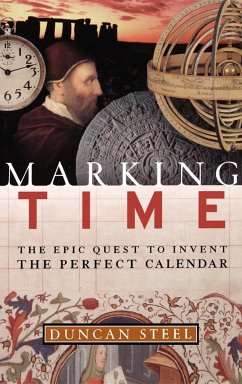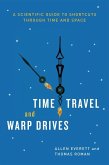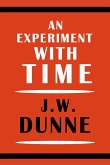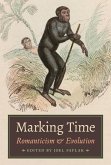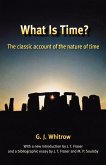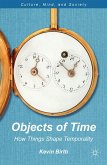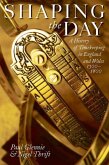Did you know? . . . * Russia's October Revolution in 1917 actually occurred on November 7th * For centuries, Britain and the colonies rang in the New Year on March 25th * The Roman Empire originally observed an eight-day week * The anno Domini (a.d.) year-counting system is wrong, and Jesus? birth actually occurred some years before December 25, 1 b.c. These are just a few of the little-known facts that you will find in acclaimed author Duncan Steel's eye-opening chronicle of the evolution of the calendar, Marking Time: The Epic Quest to Invent the Perfect Calendar. Steel takes you across the full span of recorded history, behind the seismic shifts within politics, religion, and science, and examines the ways in which people and events forged the calendar that we have today. Starting with Stonehenge and the first written records of the year and the day by the Sumerians around 3500 b.c., Marking Time charts the calendar's ever-changing, erratic trajectory?from the Egyptians? reliance on the star Sirius to the numbering of the years, linked to the celebration of Easter in Christian churches. You will also gain insight into: * The mystery of the missing ten days * The Venerable Bede and the origins of the anno Domini dating system * How and why comets have been used as clocks * Julius Caesar's 445-day-long Year of Confusion * Why there is no year zero between 1 b.c. and 1 a.d. * Whether the year 2100 should be a double-leap year A provocative history lesson and a unique, entertaining read rolled into one, Marking Time will leave you with a sense of awe at the random, hit-or-miss nature of our calendar's development?a quality that parallels the growth of civilization itself. What results is a truthful, and, above all, very human view of the calendar as we know it. After reading Marking Time, you will never look at the calendar the same way again. What are the origins of the years, months, and days that give our lives their familiar rhythm? In Marking Time: The Epic Quest to Invent the Perfect Calendar, astronomer and acclaimed author Duncan Steel marches through human history to deliver a fascinating, milestone-by-milestone look at how the modern-day calendar came to be. From the definition of the lunar month by Meton of Athens in 432 b.c., through present-day proposals to reform our calendar, Steel captures the often-flawed but always fascinating story of the calendar's evolution. Here, you will discover fun facts and surprising anecdotes as the author visits with some of the seminal figures of the past?Julius Caesar, William the Conqueror, and Benjamin Franklin among them?as well as some lesser-known names, all of whom left an indelible mark on how we record time. You will also gain an in-depth look at the role science, astronomy, religion, politics, and even war played in various calendrical systems, including the one hanging on your wall. Open up a copy of Marking Time and, as the author puts it, "read, puzzle, and enjoy." ""Guaranteed to satisfy the appetite of interested lay readers for all the facts. Gourmet reading!" " ? Library Journal on Steel's Rogue Asteroids and Doomsday Comets

